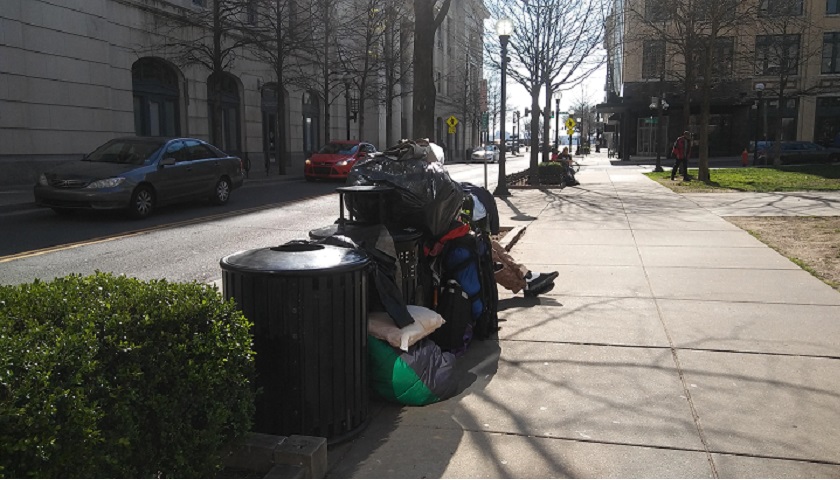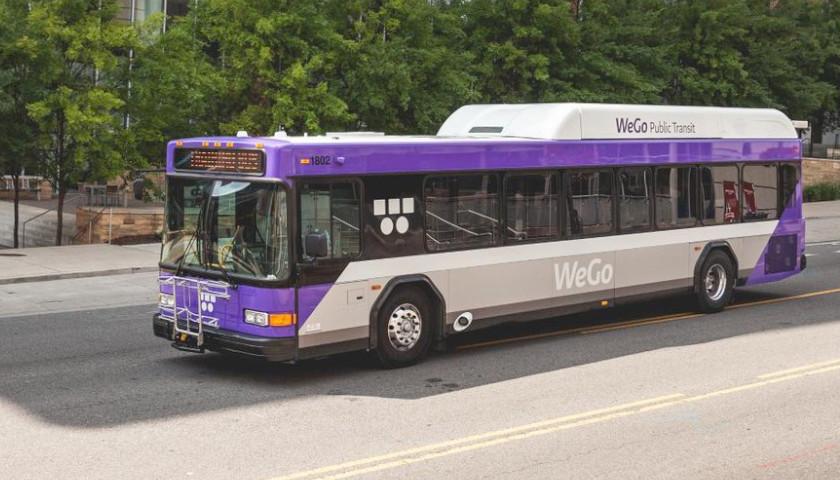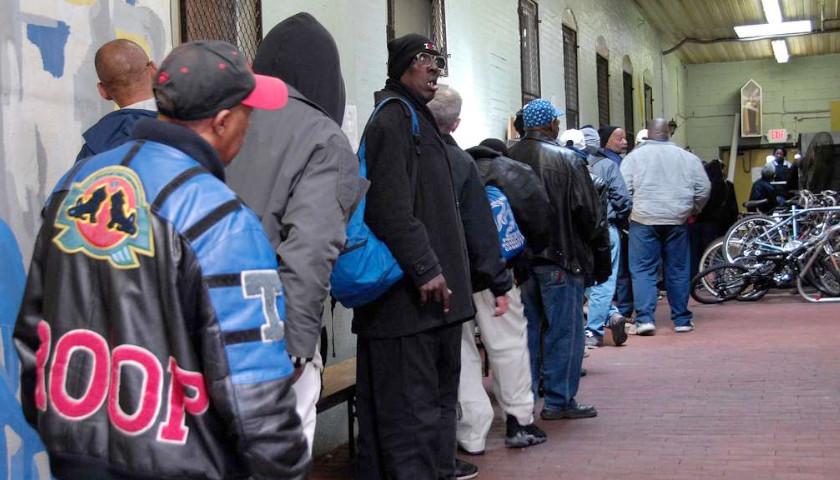Five years ago, Nashville officials launched an initiative to end homelessness as we know it.
The program, part of the “How’s Nashville” campaign, promised homelessness would end before 2017.
Seeing as how we’re more than halfway done with 2018 it’s time to assess — did the program do what Nashville officials said it would do?
After all, they promised.
Unfortunately, city officials did not return requests for comment Wednesday.
Back in 2013, the city’s Metropolitan Development and Housing Agency paired up with the Metropolitan Homelessness Commission and announced 200 housing opportunities for the chronically homeless.
They offered an unspecified amount of federal taxpayer money, via Housing and Urban Development Community Development Block Grant money.
Apparently, though, city officials didn’t get enough cash the first go-round.
Last month, according to Nashville NBC affiliate WSMV, city officials announced yet another initiative to end homelessness, this time among young people, using $3.54 million of federal taxpayer money, again from HUD.
“HUD is awarding $43 million to 11 local communities across the country,” the station reported.
“The money will fund rapid re-housing, permanent supportive housing, transitional housing and other programs.”
There were other times officials in Tennessee used taxpayer money to end homelessness as we know it.
In 2014, then HUD Secretary Shaun Donovan announced a $1.6 billion initiative to fight the problem. Exactly $18.1 million of that went to Tennessee. U.S. Rep. Steve Cohen, D-Memphis, announced that 13 nonprofits in his hometown would get $4.3 million of that.
“This significant amount of funding will help our community work to reduce — and hopefully eliminate — homelessness in Memphis,” Cohen said at the time.
In 2015, homelessness in Tennessee not yet cured, Cohen bragged about getting even more federal taxpayer money to eradicate homelessness, this time $6.9 million through what was called a Continuum of Care program.
The program gave taxpayer money to nonprofits that serve the homeless.
One of the five nonprofit recipients was the Beers Van Gogh Center of Excellence in Memphis.
Homeless people who lived there organized a protest against the center because one of its employees allegedly engaged in acts of violence and widespread sexual harassment against residents, according to the Memphis Flyer.
According to the Flyer, center officials did nothing about the man until homeless residents protested.
This, the paper went on, was part of a larger problem with homeless service networks called “Play To Stay,” implying homeless residents must endure such treatment in exchange for assistance.
– – –
Chris Butler is an investigative journalist at The Tennessee Star. Follow Chris on Facebook. Email tips to [email protected].






[…] The Tennessee Star reported last year, Nashville officials launched an initiative six years ago to end homelessness as we know it. The […]
[…] As reported, in 2014, then HUD Secretary Shaun Donovan announced a $1.6 billion initiative to fight the problem. Exactly $18.1 million of that went to Tennessee. U.S. Rep. Steve Cohen, D-Memphis, announced that 13 nonprofits in his hometown would get $4.3 million of that. […]
You know, maybe enough wasn’t funded for in the program, seeing the problem of homelessness is rather large. Maybe, just maybe we should put most of the mentally ill back into a facility? We threw them all out to save a dollar. So now they make our cities look bad….
I don’t trust that Steve Cohen at all! They should investigate his involvement with that money very closely.
Steve Cohen does not have anything to do with the money. The money is given to local agencies. This article is misleading cause it does not explain the meaning of ending homelessness. I am a homeless worker and that statement is more of a point in time statement. Larger TN cities like Nashville and Memphis have larger instances of individuals traveling from other states and becoming homeless.
If you live a life of alcohol, drugs, and crime you’re probably not going to have a permanent place to lay your head.
I would argue it makes TN a magnet for these people as they know nothing will be done (see the park across street from Nashville library downtown). What is needed is a CRACKDOWN and let these bums–that is what they are–know the welcome mat is being pulled up!